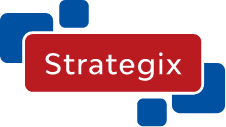Cost Accounting and Cost Applications
Understanding the costs associated with producing and delivering goods and services is crucial to long-term success. Cost accounting provides business owners and managers with valuable insights into their financial operations, allowing them to make informed decisions that can improve profitability and sustainability. In this article, we’ll take a closer look at cost accounting, its role in business, different types of costs, cost accounting applications, and how to choose the right cost accounting software for your business.
Cost accounting is the process of tracking, analysing, and allocating costs associated with producing goods or services. It involves identifying all the costs involved in the production process, including materials, labour, overhead, and other expenses. Cost accounting helps businesses determine the total cost of producing a product or providing a service, which is essential for setting prices and making informed business decisions.
The Role of Cost Accounting in a Business
Cost accounting plays a critical role in a business by providing owners and managers with the information they need to make informed decisions about pricing, production, and investment. Without accurate cost accounting, a business may not understand the true costs associated with producing a product or providing a service, which can lead to pricing errors, underestimation of expenses, and poor financial decisions.
Types of Cost Accounting
There are four main types of costs that businesses need to understand to effectively manage their financial operations: direct cost, operating cost, variable cost, and fixed cost.
Direct cost
Direct costs are expenses that are directly related to producing a specific product or providing a specific service. Examples of direct costs include materials, labour, and shipping costs. Direct costs are easy to track and assign to specific products or services.
Operating cost
Operating costs are expenses that a business incurs as part of its ongoing operations. Examples of operating costs include rent, utilities, and insurance. Operating costs are typically allocated across all products or services a business produces to determine the true cost of production. Managing operating costs is crucial for businesses to maintain profitability and sustainability. By tracking and analysing operating costs effectively, businesses can identify areas where costs can be reduced or optimised, allowing for greater efficiency and profitability. In addition, monitoring operating costs can help businesses make informed decisions about pricing, product development, and investment in new technologies or processes.
Variable cost
Variable costs are expenses that vary with the level of production or sales. Examples of variable costs include raw materials, direct labour, and commissions. Variable costs are directly tied to the number of goods or services produced, meaning they increase or decrease as production levels fluctuate.
Fixed cost
Fixed costs are expenses that remain constant regardless of the level of production or sales. Examples of fixed costs include rent, salaries, and property taxes. Fixed costs are considered necessary for a business’s operation, regardless of its output.
What are Cost Accounting Applications?
Cost accounting applications are software tools designed to help businesses manage their costs and expenses. These applications enable businesses to track and analyse their costs, monitor budget performance, and make data-driven decisions.
How to Use Cost Accounting Software Effectively?
To use cost accounting software effectively, businesses should first determine their specific needs and goals for the software. They should then research and compare different software options, choosing one that best meets their needs and budget. Once the software is implemented, it is important to ensure all data is accurately entered and regularly updated. Businesses should also regularly review and analyse the data generated by the software to make informed decisions about their operations.
Choosing the Right Cost Accounting Software for your Business
When choosing the right cost accounting software for your business, there are several factors to consider. These include the specific needs of your business, the features offered by the software, the ease of use, and the cost. It is important to carefully evaluate different options and select the one that best aligns with your business’s goals and budget. Additionally, businesses should consider the scalability of the software, as their needs may change as the business grows and evolves.
In conclusion, cost accounting is a vital process for businesses to track, analyse, and allocate costs associated with producing goods or services. It helps businesses understand the total cost of production, which is essential for making informed decisions about pricing, production, and investment.
To recap, there are four main types of costs, including direct, operating, variable, and fixed costs, and each plays a crucial role in managing financial operations. Cost accounting applications, such as software tools, can help businesses manage their costs and expenses by tracking and analysing data, monitoring budget performance, and making data-driven decisions. To use cost accounting software effectively, businesses should determine their specific needs and goals, research and compare different software options, ensure accurate data entry and regular updates, and regularly review and analyse the data generated by the software.
Ultimately, choosing the right cost accounting software for your business involves considering specific needs, features offered, ease of use, cost, and scalability to align with your business’s goals and budget – and Strategix; with our comprehensive suite of business applications, is that solution.
Business,
Simplified.
- CONTACT US
- TOP ARTICLES





